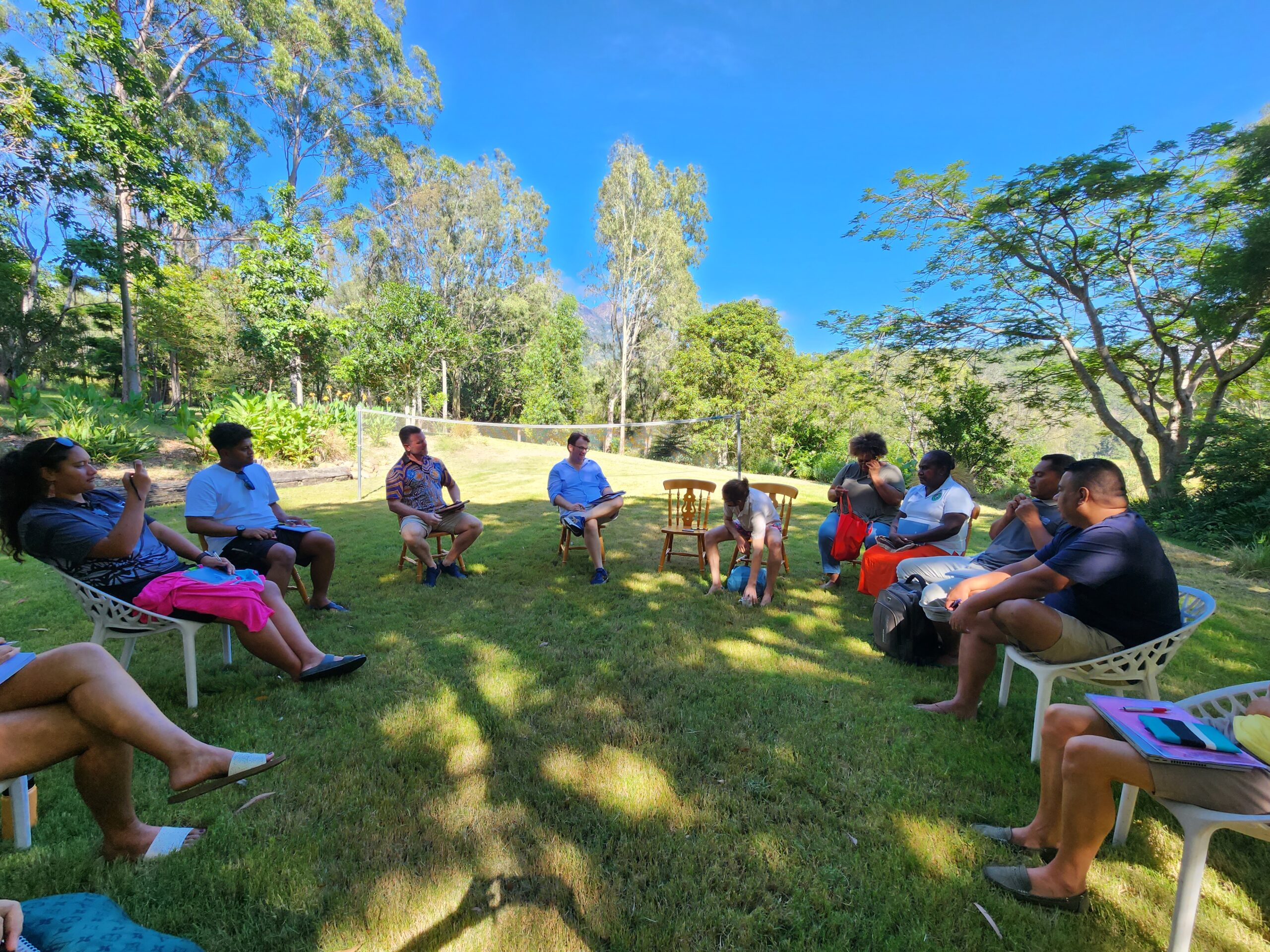Te Ipukarea Society: Pacific partners talk tourism
Saturday 2 March 2024 | Written by Te Ipukarea Society | Published in Environment, National

A two-day field trip to Mt Barney Eco-retreat provided the Pacific partners with great examples of how eco-tourism can be successful. TIS/24030101
Te Ipukarea Society recently participated in the Pacific Tourism Partners Immersion Programme organised by Griffith Institute for Tourism based in Brisbane, Australia.
Griffith Institute has been working with NGO’s and regional partners from the Pacific carrying out research to better understand community views towards tourism.
Sieni Tiraa was the Cook Islands consultant for this research programme and interviewed individuals from Rarotonga, Aitutaki and Mitiaro.
Collective findings of the research on all three islands are now available on the Griffith University of Australia webpage, under Pacific Islands Tourism Research. These results add new knowledge regarding “building back better” when considering our biggest industry, tourism. This is particularly relevant as the sector slowly recovers after the Covid pandemic.
To add further to this research, Pacific partners were invited to Griffith Institute to share local case studies around eco-tourism, challenges posed and opportunities ahead.
This was also an opportunity for partners to learn from the sharing of resources and build capacity to deliver various environmental initiatives on the ground.
A two-day field trip to Mt Barney Eco-retreat provided the Pacific partners with great examples of how eco-tourism can be successful. Here colleagues were able to share ideas in the natural classroom by simply being out in the great outdoors under a shady tree. It’s amazing how much more enthusiastic individuals’ contributions toward discussions improved from just being outside.
Connecting visitors to the visited place was achieved through a local indigenous guide sharing traditional knowledge about the uses of various plants for medicine, food and weapons. This activity highlighted examples of local operators sharing more about the essence of a place, making the place uniquely different from other holiday destinations. Great examples of these local adventures here on Rarotonga include a visit to the Takitumu Conservation Area to see native and endemic plants and bird species.
The regenerative model of taking tourism to a point where visitors leave the place and people better than they found it was also discussed through local case studies. Examples shared included visitors being able to give back by making our environment better through stream planting and restoration projects offered by Muri Environment Care. Supporting the Rent a Plate washing system used at local night markets, or taking part in Circle Cook Islands plastic weaving classes so visitors ultimately end up taking plastic waste items back home with them, are other Cook Islands examples. These initiatives help by reducing the amount of rubbish which end up in our landfill.
The good work facilitated by TIS platinum and gold corporate members was also shared from waste management initiatives to providing alternative products that cut down on carbon emissions.
By supporting TIS through annual membership fees they also support the upkeep of grassroots environmental projects such as turtle monitoring surveys, waste education and biodiversity awareness and its protection from our Ridge to our Reef. The only current Te Ipukarea Society platinum member is The Rarotongan group. Gold members include: Pacific Resort, CITC, Kia Orana Villas, Tae-ria, Motu Villas, Koka Lagoon, Capital Security Bank, BCI, ANZ, Motor Center, and Gold Mine.
The five-day tourism immersion week included representation from Korero o te orau, SPREP, South Pacific Tourism Organisation, Nature Conservancy, Mamanuca Environment Society and Vatuvara Foundation.
Based on the working group discussion held at Griffith University, the university now looks to develop a Pacific Tourism Model that achieves and supports regenerative practices from visitors and the operators and services provided at Pacific holiday destinations.














































